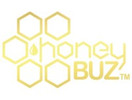Happy Earth Day Think Recycling and Biodegradable
Save the Planet
We are determined to set an example and raise awareness of the dangers of plastics.
At Honey Buz we set intention to the words “ Save the Planet”, as part of our daily mantra.
We begin our manufacturing by sourcing and supporting local farmers and beekeepers and we manufacture with less water (or none at all ) and consider our packaging and what touches your body and leaves your bathing room. We are chemical free, preservative free, dye free, and free to give back to nature what we take.
For Earth Day 2021 we are descending on Lake Hopatcong’s beautiful Byram Cove to clear away garbage and make Lake residents aware of plants and rain gardens flowers that not only help keep the water clean and clear it helps our pollinators too, and at Honey Buz that is one of our major supplies local raw Honey.
Please take a look at this fact sheet from earthday.org which we are proud members! We also ask that you consider joining and adding your own personal commitment to our best cause “Save the Planet” which in turn saves us all.
EarthDay.Org
Fact Sheet: Microplastics and In Our Water
The billions upon billions of items of plastic waste choking our oceans, lakes, and rivers and piling up on land is more than unsightly and harmful to plants and wildlife.
Plastic Pollution is a very real and growing threat to human health.
The following facts shed light on how plastic is proving dangerous to human health.
| FACT #1 | Microplastics[1] in different forms are present in almost all water systems in the world, be they streams, rivers, lakes, or oceans.[2] |
| FACT #2 | According to a study conducted by Orb Media on plastics and tap water, 83% of tested water samples from major metropolitan areas around the world were contaminated with plastic fibers.[3] |
| FACT #3 | Plastic fibers were also found in bottled water produced by 11 of the world’s largest brands purchased from 19 locations in 9 countries. 93% of bottled water showed some sign of microplastic contamination, including polypropylene, nylon, and polyethylene terephthalate (PET).[4] |
| FACT #4 | Each year, about 1 million tons of tiny plastic fibers are released into wastewater.[5] |
| FACT #5 | There are no regulatory limits on the levels of microplastics in bottled water.[6] |
| FACT #6 | In 2015, the US passed the Microbead-Free Waters Act, banning plastic microbeads[7] in cosmetics and personal care products sold in the United States. |
[1]Some microplastics start out as large plastic pieces, slowly eroded by water or exposure to the sun and the elements; others start off as microplastics specifically produced for certain uses. The first example of this is microbeads, which are created mostly for use in cosmetic and hygiene products. They are very tiny pieces of manufactured polyethylene plastic that are added as exfoliants to health and beauty products, such as some cleansers, toothpaste, facewash, soap and shower cream.
These micro plastics show up in our rivers, streams and lakes, and eventually in the ocean. We are working today to help our Lake Hopatcong community by collecting plastics and garbage that have made there way to the shores. Whether we have been careless in throwing garbage in the lake (please stop it ) or we have debris that has been trapped in waterways and storm surge that flows into the lake, it is so important to be considerate of our environment as it all comes back to us anyway.
[2] http://www.pbs.org/wgbh/nova/next/earth/freshwater-microplastics/
[3] https://orbmedia.org/stories/Invisibles_plastics
[4] https://orbmedia.org/sites/default/files/FinalBottledWaterReport.pdf
[5] https://orbmedia.org/stories/Invisibles_plastics
[6] http://www.bbc.com/news/science-environment-43388870
[7] Microbeads are very tiny pieces of manufactured polyethylene plastic that are added as exfoliants to health and beauty products, such as some cleansers, toothpaste, facewash, soap and shower cream.
Help us to establish better manufacturing of cosmetics, using biodegradable means and supporting local farmers and beekeepers as good stewards of the earth.

